Russian Goals in the Armenian Snap Parliamentary Elections  By Benyamin Poghosyan, PhD, Chairman, Center for Political and Economic Strategic Studies By Benyamin Poghosyan, PhD, Chairman, Center for Political and Economic Strategic Studies
Armenia is actively preparing for the 20 June 2021 snap parliamentary elections. Political parties are making their final calculations regarding the format of their participation. The main battle will probably occur between the incumbent prime minister, Nikol Pashinyan, and the second president of Armenia, Robert Kocharyan. The latter has already confirmed that he will lead an alliance of two or three parties. The Armenian Revolutionary Federation, the “Motherland” party, established by the former director of the National Security Service, Artur Vanetsyan, and the new “Rebirth Armenia” party established by the former governor of the Syunik region, Vahe Hakobyan, which unites several mayors from the Syunik, may create an electoral bloc under the leadership of Robert Kocharyan. READ MORE
US-Turkey Relations: CAATSA and Beyond 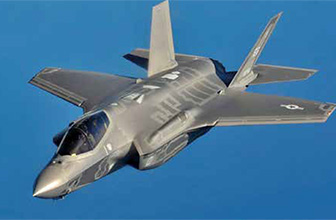 By Eugene Kogan, Tbilisi-based defence and security expert By Eugene Kogan, Tbilisi-based defence and security expert
US-Turkey relations have a history of challenges in general but with the ascent of Prime Minister Recep Tayyip Erdogan in 2001, the challenges reached their peak with the failed coup of 15 July 2016 that Erdogan blamed on the US-based cleric, Fethullah Gulen.
By becoming the first elected executive President of Turkey, Erdoğan has also transformed Turkey from a secular, democratic and reliable Western allied regime guarding NATO’s South-Eastern flank to an Islamic, nationalist and autocratic regime. Erdoğan’s policy is undermining the foundation of US-Turkey relations. This article outlines three cases that highlight the undermining of this relationship: S-400 vs. F-35; Halkbank; the Turkish citizens working at the US Consulate General becoming targets of politically-motivated legal charges. READ MORE.
A Vote Largely Motivated by Hate in Armenia’s June ‘21 Elections  By Benyamin Poghosyan, PhD, Chairman, Center for Political and Economic Strategic Studies By Benyamin Poghosyan, PhD, Chairman, Center for Political and Economic Strategic Studies
Former president Robert Kocharyan has emerged as the strongest challenger to prime minister Nikol Pashinyan in Armenian’s forthcoming parliamentary elections. However, most voters are simply motivated by their hate of one or the other.
Armenia is looking forward to the snap parliamentary elections scheduled for June 20, 2021. According to the preliminary agreement between the ruling "My step" faction and the two parliamentary opposition parties, prime minister Nikol Pashinyan will resign at the end of April, beginning of May; Parliament will not elect a new prime minister twice; and will thereafter be automatically dissolved as provided for by the Armenian constitution. READ MORE
US-Turkey Relations Are Difficult but Enduring  By Benyamin Poghosyan, PhD, Chairman, Center for Political and Economic Strategic Studies By Benyamin Poghosyan, PhD, Chairman, Center for Political and Economic Strategic Studies
US-Turkey relations have passed through significant transformations in the last decade. President Obama started by seeking to build a "model partnership" with Turkey during his first term in office, but later he confronted Turkey over the growing authoritarianism of President Recep Tayyip Erdogan. The US decision to choose the Syrian Kurds as the main ally in their fight against ISIS in Syria triggered significant resentment from Turkey. Ankara perceives the Kurdish YPG fighters as a Syrian branch of Kurdistan Workers Party (PKK), which was identified as a terrorist organisation by both the US and Turkey. Ankara repeatedly warned the US "not to use terrorists to fight other terrorists". READ MORE
Economic Consequences of the Second Karabakh War for Armenia  By Benyamin Poghosyan, PhD, Chairman, Center for Political and Economic Strategic Studies By Benyamin Poghosyan, PhD, Chairman, Center for Political and Economic Strategic Studies
The second Karabakh war ended with Armenia's capitulation. The unrecognized Nagorno Karabakh Republic lost approximately 75 percent of its territories, including parts of the former Nagorno Karabakh Autonomous Region within its 1988 borders. However, despite the clear defeat of Armenia, the conflict has not been solved. Azerbaijan was not able to invade the whole territory of Nagorno Karabakh and currently, some 3000 square km of the territory is being controlled by Russian peacekeepers effectively creating a de facto Russian protectorate. READ MORE
- December 22, 2020 20:32PM
The True Nature of Sino-Russian Relations 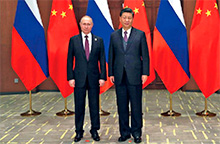 By Eugene Kogan, Tbilisi-based defence and security expert By Eugene Kogan, Tbilisi-based defence and security expert
While Russia is certainly viewed by Beijing as a reliable economic and trade partner with its oil, gas and arms exports to China, the Chinese do certainly not overemphasise this relationship. Instead, China sees Russia as a waning power with its vast territories, supported by armed forces and nuclear weapons, while at the same time prone to endemic corruption and unable to pursue meaningful economic, political and social reforms. READ MORE
- November 26, 2020 08:51AM
China, Russia and the EU: Forging a Cooperative Relationship 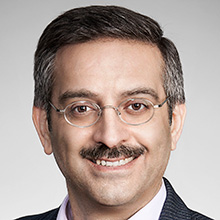 By Elkhan Nuriyev, PhD, Eastern Europe-Global Area (EEGA) fellow at Leipzig University By Elkhan Nuriyev, PhD, Eastern Europe-Global Area (EEGA) fellow at Leipzig University
For Russia, China’s Belt and Road Initiative is less of a threat than an opportunity. Moscow is receptive to the BRI’s ability to help create a multipolar world as it bolsters China’s global stance to counterbalance American hegemony. The Kremlin also views the BRI as a means to attract Chinese investment and foster renewed Russian influence over the European Union’s eastern zone. One of the important buckles of the Silk Road Economic Belt – the overland component of China’s ambitious Belt and Road Initiative (BRI) – is the Eastern Partnership (EaP) region, which represents an essential link between Asia and Europe. Developing this stage means enhancing commercial relations with six partner countries and an infusion of investment funds in several emerging-market economies. READ MORE
Iran–Turkey Rivalry in the Middle East: The Case of Lebanon  By Benyamin Poghosyan, PhD, Chairman, Center for Political and Economic Strategic Studies By Benyamin Poghosyan, PhD, Chairman, Center for Political and Economic Strategic Studies
Iran and Turkey have a long history of rivalry in the Middle East. As two key regional powers, they were vying for influence and seeking to expand their spheres of influence. After WWII both Iran and Turkey had an anti-Soviet attitude and participated in the Central Treaty Organization with the key goal to contain the Soviet Union. The Cold War has halted bilateral competition, while the 1979 Islamic Revolution in Iran has significantly changed the regional balance of power. READ MORE
- September 23, 2020 08:48AM
Covid-19 Is an Important Test for Azerbaijani Unity 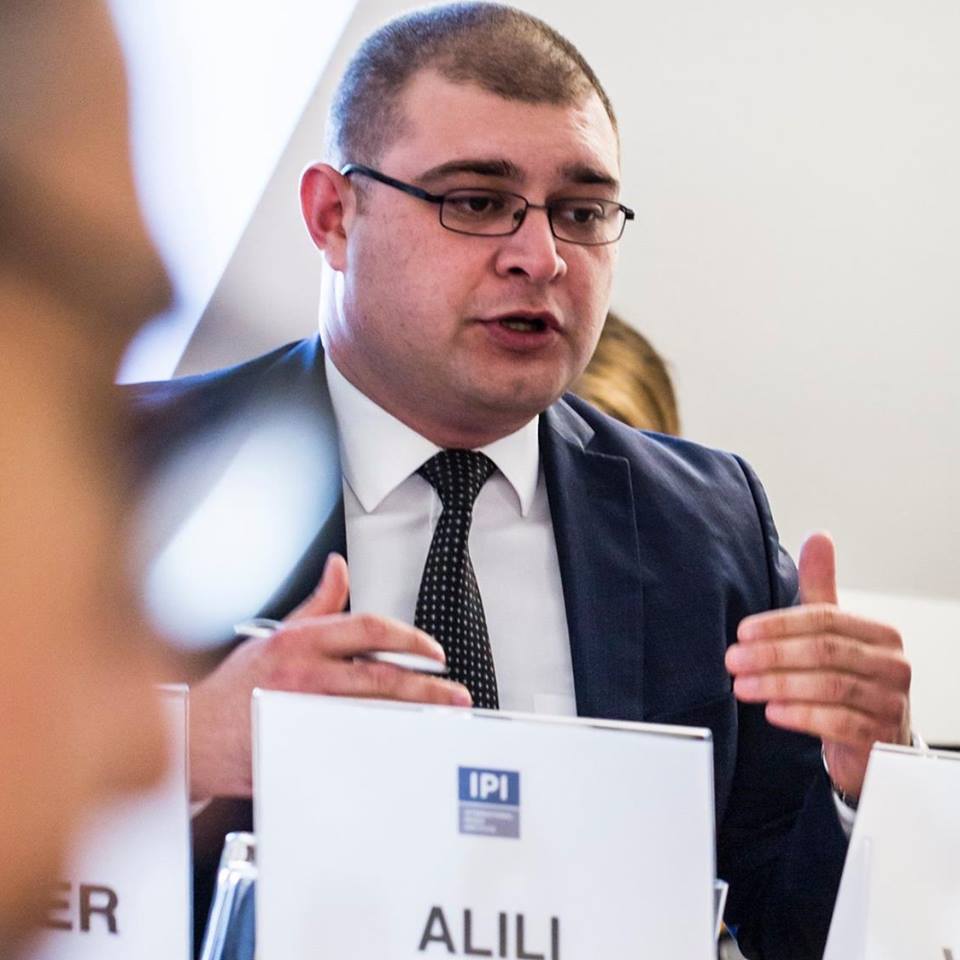 By Ahmad Alili, Head of Research, Caucasus Policy Analysis Center, Baku By Ahmad Alili, Head of Research, Caucasus Policy Analysis Center, Baku
The COVID-19 pandemic has created interesting qualitative and quantitative changes at the top of Azerbaijan's public agenda. Following the snap parliamentary elections in February, the newly elected Parliament, which includes a number of new faces, is tasked to address the challenges the country is facing. In a speech at the opening of the Parliament, President Aliyev sent clear messages to the public servants, political parties and youth. READ MORE
- September 12, 2020 10:32AM
China and Iran Eye Twenty Five Years Strategic Deal  By Benyamin Poghosyan, PhD, Chairman, Center for Political and Economic Strategic Studies By Benyamin Poghosyan, PhD, Chairman, Center for Political and Economic Strategic Studies
A proposed China-Iran 25 year strategic agreement may change the power balance in the wider Middle East. It may also increase Chinese interests in Armenia.
In January 2016, Chinese President Xi Jinping became the first world leader to visit Tehran following the lifting of international sanctions alongside the 2015 Iran nuclear deal. The visit resulted in the signing of 17 agreements on issues ranging from energy to boosting bilateral trade to $600bn. Now, discussions are underway regarding the possibility of a new China-Iran 25-year strategic partnership deal - an idea floated by President Xi, which has apparently received a warm reception amongst the Iranian leadership. READ MORE
What implications for Eastern Partnership countries of a Biden Administration?  By Benyamin Poghosyan, PhD, Chairman, Center for Political and Economic Strategic Studies By Benyamin Poghosyan, PhD, Chairman, Center for Political and Economic Strategic Studies
The November 2020 Presidential elections will probably be the most polarized one in recent American history. The society is divided almost on every critical issue facing America. The foreign policy was never been a decisive factor in the US elections. Americans mainly vote based on the economic situation. However, as the US, despite its relative decline, still remains the sole military superpower and has capacities to seriously impact the geopolitical developments all over the world, almost all countries are looking forward to the election results, simultaneously seeking to understand the key features of the US next administration foreign policy agenda. READ MORE
Covid19 Outbreak - A Test to Global Governance 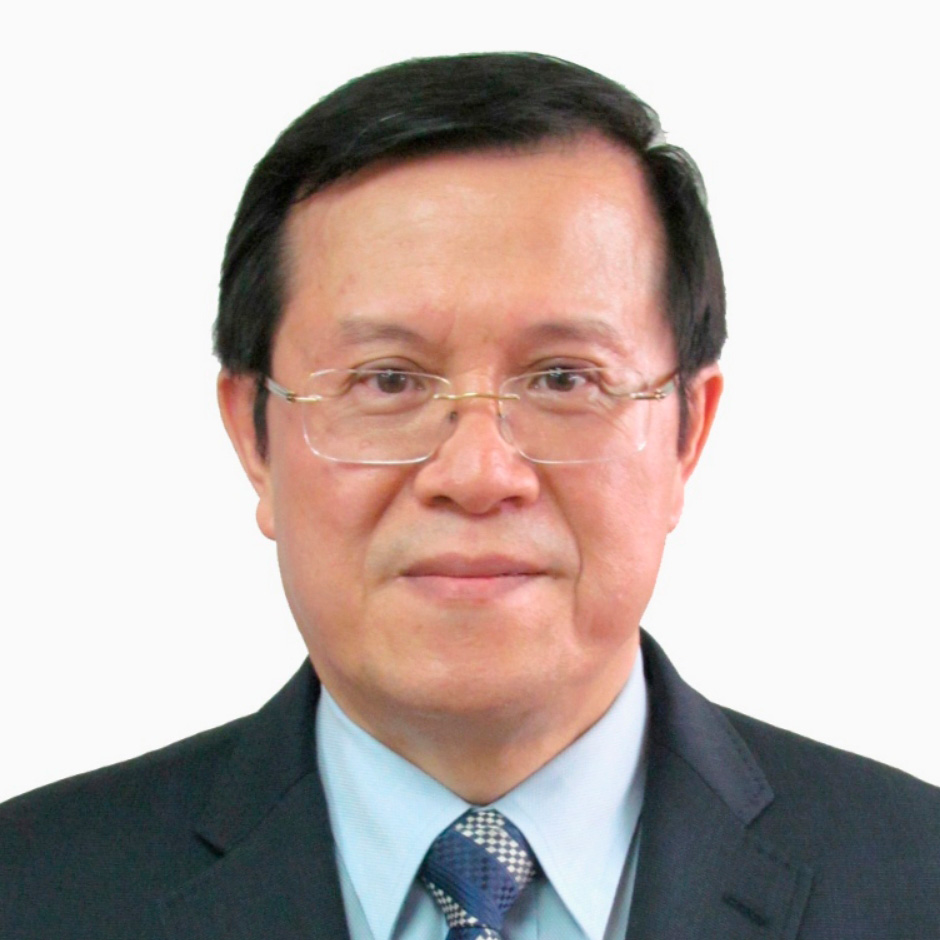 By Ong Tee Keat, Chairman, Center for New Inclusive Asia, Kuala Lumpur By Ong Tee Keat, Chairman, Center for New Inclusive Asia, Kuala Lumpur
On March 11th , 2020, Robert Redfield, the director of US Center for Disease Control & Prevention (CDC), dropped a proverbial bombshell when he testified to the US Congress admitting that numerous Corona virus deaths might have been miscategorized as flu. This belated admission of misdiagnosis has further lent credence to the earlier speculation that many pulmonary fibrosis cases which resulted in deaths due to patients' inability to breathe might in fact have been caused by the Corona virus. These cases, where symptoms might have been masked by attributions to e-cigarette or vaping, happened well before the virus outbreak in Wuhan, China. READ MORE.
Establishing Joint Armenia–China Peacekeeping Training Center in Armenia  By Benyamin Poghosyan, PhD, Chairman, Center for Political and Economic Strategic Studies By Benyamin Poghosyan, PhD, Chairman, Center for Political and Economic Strategic Studies
Peacekeeping operations are one of the key domains of international relations. They play a paramount role in securing stability and fostering international cooperation. Currently, fourteen peacekeeping operations around the globe are led by the UN Department of Peace operations. Several other international organizations are involved in peacekeeping missions, but the UN is the ultimate authority in this sphere. READ MORE
President Donald Trump’s Possible Second Term: Implications for Eastern Europe  By Benyamin Poghosyan, PhD, Chairman, Center for Political and Economic Strategic Studies By Benyamin Poghosyan, PhD, Chairman, Center for Political and Economic Strategic Studies
In November 2020 Americans will again go to the polls to elect the President of the United States. Upcoming elections could be one of the most polarized political events in decades. The American society is deeply divided between pro and anti-Trump camps. The economic crisis triggered by the COVID-19 and rising social and racial tensions will contribute to the fierce election campaign. Many Americans make their choice based on the economic situation at home are not interested in foreign policy. READ MORE
Transformation of The Global Order: The End of Unipolarity and US - China Relations  By Benyamin Poghosyan, PhD, Chairman, Center for Political and Economic Strategic Studies By Benyamin Poghosyan, PhD, Chairman, Center for Political and Economic Strategic Studies
The COVID – 19 pandemic triggered a fierce debate among experts of international relations on the key features of the post COVID-19 world. There are several predictions and assessments – the end of globalization, the enhanced role of nation states, and a shift in global supply chains. It’s too early and difficult to assess what the world will look like decades from now, however, almost all experts have agreed on one thing; there will be no return to the 1990s and the beginning of the 2000s, when the US enjoyed absolute power and unconstrained possibilities. READ MORE
Russia and Eurasian Dilemmas 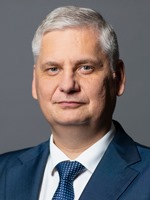 By Sergey Markedonov, Leading Researcher, MGIMO Institute
By Sergey Markedonov, Leading Researcher, MGIMO Institute
Future historians will definitely christen the year 2020 as the worldwide onset of coronavirus. It seems like tons of research articles and expert reports on the impact of the pandemic on the global economy and international political processes have been published. However, it is quite obvious that with the focus having been shifted towards the global perspective, the processes taking place in individual countries and regions appear to be falling out of sight. In the meantime, all of the conclusions drawn about the comprehensive implications of COVID-19 will remain somewhat schematic and generic without due consideration of their nuances and peculiarities. READ MORE
Armenia-Iran Relations: Continuity or Ambiguity?  By Benyamin Poghosyan, PhD, Chairman, Center for Political and Economic Strategic Studies By Benyamin Poghosyan, PhD, Chairman, Center for Political and Economic Strategic Studies
Relations with Iran have always been high on Armenia's foreign policy agenda. Given the closed borders with Azerbaijan and Georgia, Iran is one of only two gateways to the world for Armenia. Friendly relations with this neighboring Muslim state play a significant role in Armenian efforts to counter Azerbaijan in its attempts to depict the Karabakh conflict as a religious one and thus garner the Muslim world's support against Armenia. READ MORE
Presidential Elections in Karabakh: Background and Implications  By Benyamin Poghosyan, PhD, Chairman, Center for Political and Economic Strategic Studies By Benyamin Poghosyan, PhD, Chairman, Center for Political and Economic Strategic Studies
On March 31, 2020 presidential and parliamentary elections were held in unrecognized Nagorno Karabakh Republic. Five parties entered the Parliament, while President was elected during the second round, on April 14. The winner of the Presidential campaign was Arayik Harutyunyan, who received 49 percent of votes during the first round and 88 percent during the second round. However, his main contender Masis Mayilyan de facto boycotted second round asking his supporters not to participate in the elections due to the COVID19 outbreak. READ MORE
Coronavirus Presents Armenia with Difficult Challenges  By Benyamin Poghosyan, PhD, Chairman, Center for Political and Economic Strategic Studies By Benyamin Poghosyan, PhD, Chairman, Center for Political and Economic Strategic Studies
The COVID-19 pandemic has confronted governments with two massive simultaneous challenges. They have to contain the virus through large scale social distancing to prevent the uncontrolled growth of infected people and collapse of the health system. Meanwhile, each day that passes with economic activity virtually suspended puts an enormous pressure on businesses, and contributes to a possible social and financial collapse. Armenia faces the same dilemma. READ MORE
Coronavirus Presents Armenia with Difficult Challenges  By Benyamin Poghosyan, PhD, Chairman, Center for Political and Economic Strategic Studies By Benyamin Poghosyan, PhD, Chairman, Center for Political and Economic Strategic Studies
The COVID-19 pandemic has confronted governments with two massive simultaneous challenges. They have to contain the virus through large scale social distancing to prevent the uncontrolled growth of infected people and collapse of the health system. Meanwhile, each day that passes with economic activity virtually suspended puts an enormous pressure on businesses, and contributes to a possible social and financial collapse. Armenia faces the same dilemma. READ MORE
The Karabakh Elections Go to Second Round  By Benyamin Poghosyan, PhD, Chairman, Center for Political and Economic Strategic Studies By Benyamin Poghosyan, PhD, Chairman, Center for Political and Economic Strategic Studies
Elections were held in Nagorno-Karabakh on 31 March but since no candidate secured the necessary amount of votes a run-off is now expected between the two leading candidates in two weeks-time.
On March 31, 2020 Presidential and Parliamentary elections were held in Artsakh (Nagorno-Karabakh). Elections are not something new for Karabakh. Since the mid-1990s regular general as well as local elections have been held there. However, this time almost everything was different, such as the record number of candidates (14 running for the office of President and 10 parties and 2 blocks for Parliament) and the fully proportional electoral system. However, the key difference was the ambiguity of the position of Republic of Armenia's leadership. READ MORE
Armenia and the US: Time for New Thinking  By Eduard Abrahamyan, Senior Fellow with the London-based Institute for Statecraft By Eduard Abrahamyan, Senior Fellow with the London-based Institute for Statecraft
Armenia’s 2018 Velvet Revolution raised hopes for a reinvigoration of the country’s decades-long partnership with the U.S. However, this relationship remains stagnant, despite the visit of a U.S. delegation led by National Security Advisor John Bolton in October 2018 and the subsequent visit of Deputy Assistant Secretary George Kent to Yerevan in May 2019, resulting in the formal elevation of Armenia’s relations with the U.S. to the level of “strategic dialogue.” Moreover, Yerevan’s decision to dispatch a military-humanitarian mission to Syria remains an irritant in its interaction with Washington.
READ MORE
Will Putin Allow Belarus to Play a Balancing Game?  By Benyamin Poghosyan, PhD, Chairman, Center for Political and Economic Strategic Studies By Benyamin Poghosyan, PhD, Chairman, Center for Political and Economic Strategic Studies
With Pompeo due in Minsk this week, and the Belarus presidential elections on the horizon, Moscow and Minsk have some difficult decisions to take.
Relations between Russia and Belarus are one of the hotly debated issues among pundits dealing with the politics of the post-Soviet space. Till recently bilateral relations were focused on economic cooperation, and more particularly, on the price of Russian gas and oil delivered to Belarus. In 2019 the accent shifted towards the practical implementation of the 1999 Union State treaty. The looming power transition in Russia in 2024, when President Putin fourth Presidential term expires, has inflamed the debate on the possibility of President Putin becoming the President of the Union state after 2024. This scenario was discussed as a possible way for President Putin to extend his power beyond 2024. READ MORE
Why Strong Armenia is Beneficial for both Russia and the US  By Benyamin Poghosyan, PhD, Executive Director, Political Science Association of Armenia By Benyamin Poghosyan, PhD, Executive Director, Political Science Association of Armenia
The South Caucasus always has quite complicated geopolitics. Russia, the US, the EU, Iran, Turkey, and China all have interests here. Armenia, Azerbaijan, and Georgia have different domestic political structures and cultures. Besides that, their national security threat perception and foreign policy goals do not coincide with each other. The protracted conflicts in Nagorno Karabakh, Abkhazia, and South Ossetia make the regional geopolitics even more complicated. All actors involved in the South Caucasus seek to exploit these conflicts to pursue their national interests; meanwhile, conflicting parties themselves have an absolutely different understanding on how these conflicts may be resolved. READ MORE
- December 10, 2019 23:02PM
Protests in Iran and Implications for Armenia  By Benyamin Poghosyan, PhD, Executive Director, Political Science Association of Armenia By Benyamin Poghosyan, PhD, Executive Director, Political Science Association of Armenia
”Recent waves of protests in Iran that broke out as a result of the Government decision to significantly raise gasoline prices, pose potential problems to all of its neighbors, including Armenia. One of the most critical problems can be the possible influx of refugees into the territory of Armenia and Nagorno Karabakh.
Domestic instability in Iran is a source of concern for all its neighbors, including Armenia. Iran is one of the only two open borders Armenia has to reach the outside world. Any significant weakening of Iranian state institutions may complicate the export and import operations through Iran which definitely will put additional pressure on the Armenian economy. READ MORE
|
|